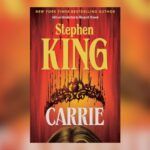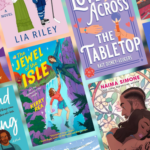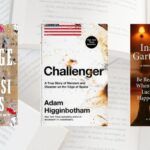
18 Middle Grade Authors on Writing Girl Characters After Election
Coming to terms with the 2016 election has been difficult for those of us who are children’s authors. For many of us, the hardest part of the election was waking up the morning after and realizing that we would have to explain to children that a man who belittled women throughout his campaign had just been elected to the highest office in the nation.
The eighteen women we interviewed for this piece are children’s authors who write for middle grade readers. They had all been thinking deeply about what this election will mean for children, especially for girls. We asked them for their thoughts on writing in the wake of Trump’s election. Their responses are below.
— Christina Soontornvat, Melanie Conklin, Lindsay Eager, Claire Legrand, & Erin Petti
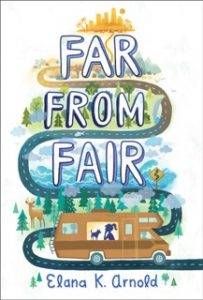 “I woke up on the morning of November 8th feeling excited, optimistic, and more than a little nervous. I write books with complicated emotions and sometimes ambiguous endings, but on the morning of November 8th, I was not in the mood for ambiguity or complexity. I was in the mood for decisive victory.
“I woke up on the morning of November 8th feeling excited, optimistic, and more than a little nervous. I write books with complicated emotions and sometimes ambiguous endings, but on the morning of November 8th, I was not in the mood for ambiguity or complexity. I was in the mood for decisive victory.
I woke up on the morning of November 9th sick with the flu and sick of heart. It was days before I could bring myself to think about writing anything other than a Facebook post, an angry tweet, and email to a friend. Logically, I know that writing books for young readers is the long game of fostering the beliefs and actions I want to see in the world, but in the present unraveling, telling my little stories felt self-indulgent when there was bigger work to be done.
Of course, telling my stories is the work I best know how to do, and so I must return to it while at the same time working in other ways to effect change. I have never written a book to prove a point, to convince a reader, to shift a view. I am a selfish writer who tells the stories that interest me. I won’t now set out to write stories that will convince my readers to feel the way I feel, to act the ways I want to act. But I am a different person on this side of the election results, knowing the things I now know about my country, and so a different writer will be creating different stories. How could the books I write from here forward not reflect the anger and betrayal I feel, the “blinders off” sensation I’ve been sitting with?”
— Elana Arnold, author of Far From Fair
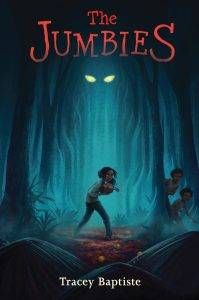 “Long before the election results, I had been thinking about the level of vitriol and misunderstanding in the world, in particular, the way misinformation (and the anger it unearths) can spread quickly with a click. My background is in education, with years of training in teaching students how to look critically at writing, evaluate sources, dig for the truth. These skills seem to have fallen into disuse. Before The Jumbies, most of my books were nonfiction, so I began to look for a story that would encourage critical thinking, especially where there are different perspectives to consider. Being able to come at a problem from different angles is as important a skill as the ability to evaluate a source and think critically, so I’m focused on telling stories that help readers make use of all of these skills. Going forward, it’s these skills that will be the most critical in helping people come together. It’s not that everyone has to have the same ideas. I have friends who run the gamut from super conservative to ultra liberal, but we have always been able to find common ground. That common ground seems to have eroded in the current political climate, and this is my way to help get it back.”
“Long before the election results, I had been thinking about the level of vitriol and misunderstanding in the world, in particular, the way misinformation (and the anger it unearths) can spread quickly with a click. My background is in education, with years of training in teaching students how to look critically at writing, evaluate sources, dig for the truth. These skills seem to have fallen into disuse. Before The Jumbies, most of my books were nonfiction, so I began to look for a story that would encourage critical thinking, especially where there are different perspectives to consider. Being able to come at a problem from different angles is as important a skill as the ability to evaluate a source and think critically, so I’m focused on telling stories that help readers make use of all of these skills. Going forward, it’s these skills that will be the most critical in helping people come together. It’s not that everyone has to have the same ideas. I have friends who run the gamut from super conservative to ultra liberal, but we have always been able to find common ground. That common ground seems to have eroded in the current political climate, and this is my way to help get it back.”
— Tracey Baptiste, author of The Jumbies
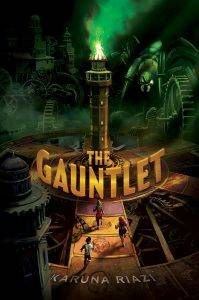 “Recently, I’ve spoken a lot about the need to build homes in fiction for all readers. Home, right here, right now, is what all of us desperately need to be assured is there for us. Home is what we seek in fiction when the sky is dark and the world is quiet. At this time, when young girls – particularly marginalized girls, with targets drawn on their backs by unfriendly, uncaring hands – feel the ground shaking beneath their feet, it is particularly crucial for us to craft fiction that grounds them, that allows them to dig in their heels and claim what is under their feet and know that their stories count, and their voices and bodies and hearts matter and are noticed and fervently encouraged. We need to let them know that, regardless of what else may be said, that is the true undercurrent within this community and within the books they love. They are loved back. They are wanted back. And there is always a home for them here.”
“Recently, I’ve spoken a lot about the need to build homes in fiction for all readers. Home, right here, right now, is what all of us desperately need to be assured is there for us. Home is what we seek in fiction when the sky is dark and the world is quiet. At this time, when young girls – particularly marginalized girls, with targets drawn on their backs by unfriendly, uncaring hands – feel the ground shaking beneath their feet, it is particularly crucial for us to craft fiction that grounds them, that allows them to dig in their heels and claim what is under their feet and know that their stories count, and their voices and bodies and hearts matter and are noticed and fervently encouraged. We need to let them know that, regardless of what else may be said, that is the true undercurrent within this community and within the books they love. They are loved back. They are wanted back. And there is always a home for them here.”
— Karuna Riazi, author of The Gauntlet
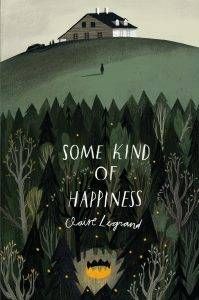 “When children ask me what they can do to become better writers, I always tell them two things:
“When children ask me what they can do to become better writers, I always tell them two things:
1) Read, read, read as much as you can. Read widely–stories that vary by genre, format, audience. Stories you know you’ll love; stories that will push and pull the boundaries of your comfort zone.
2) Get out there in the world and live. Talk to people. Lots of people. People who are like you, and, more importantly, people who aren’t. Have conversations. Listen. Learn.
Reading and living. Reading and learning. Reading and listening. These are the tools we as writers–and as humans–must wield in order to cultivate empathy. And now, as we look toward a Trump presidency, empathy is something we need more than we ever have before. Empathy is crucial. Empathy is fundamental. It is the thing we must model for our children more than any other humanly quality. (For without empathy, what are we? Nothing better than beasts, operating on instinct and cold fear.) And yet here we stand, a country that has elected a man who is not only an embarrassment in every possible way, but who also exhibits no empathy for his soon-to-be constituents. The man who will soon be the leader of our country has demonstrated time and time again that he will mock and disparage and threaten anyone he doesn’t like, anyone who speaks out against him, anyone who says, “No, sir, you are wrong.”
This is the leader our children will grow up watching. Listening to. Imitating.
But they will also grow up reading the books I write, and the books written by the fantastic tribe of women writers I am lucky enough to call friends and colleagues. That, more than anything, gives me hope.
So I will put pen to paper and fingers to keys, and I will write, for words are the mightiest weapons in my arsenal. I will write inclusively and with empathy. I will write about girls who are mocked and threatened, ignored and dismissed, who rise up with all their unique and beautiful gifts to create a better world for themselves and their communities. And I know I won’t be the only woman writing such stories. In fact, it’s one thing I look forward to about the next few years–the crop of fantastic children’s books that will emerge from this tremendous national failure.
Writing and living. Writing and learning. Writing and listening. Writing and sisterhood. These are our tools. And we are legion.”
— Claire Legrand, author of Some Kind of Happiness
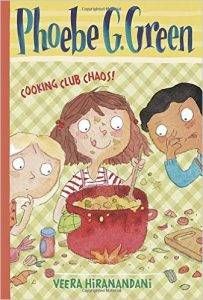 “In the wake of the election, I’m thinking more than ever about identity, how people choose to share their many identities, and if they feel safe doing so. Tragically, the election has stimulated and validated the expression of hate not only against girls and women, but against certain ethnicities and religious identities. For girls in particular, because girls and women have always faced more obstacles than men, feeling safe may be harder post-election. Hopefully this will only inspire writers even more to create female characters who embody strength, love, and acceptance. At least that’s my hope.”
“In the wake of the election, I’m thinking more than ever about identity, how people choose to share their many identities, and if they feel safe doing so. Tragically, the election has stimulated and validated the expression of hate not only against girls and women, but against certain ethnicities and religious identities. For girls in particular, because girls and women have always faced more obstacles than men, feeling safe may be harder post-election. Hopefully this will only inspire writers even more to create female characters who embody strength, love, and acceptance. At least that’s my hope.”
— Veera Hiranandani, author of Phoebe G. Green series
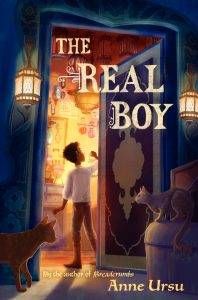 “I’m sitting on two different works-in-progress, both of which I wrote with the idea of helping girls be in a world that can ignore, degrade, and silence them. In the wake of this election—where an impeccably qualified and capable woman was defeated by a KKK-endorsed admitted sexual predator who couldn’t pass a fifth grade social studies test–-that project feels much more urgent, and much harder.
“I’m sitting on two different works-in-progress, both of which I wrote with the idea of helping girls be in a world that can ignore, degrade, and silence them. In the wake of this election—where an impeccably qualified and capable woman was defeated by a KKK-endorsed admitted sexual predator who couldn’t pass a fifth grade social studies test–-that project feels much more urgent, and much harder.
I want to tell girls that they matter, even if not everyone treats them that way. And that, yes, the world may not always take care of them or value them, so they must take care of themselves. And they must value and take care of each other.
This becomes even more urgent in a world where a majority of white women voted for Trump despite the terrible consequences for their sisters. We witnessed a colossal failure of empathy this election, and I do not know how to explain that to girls either. I do know that it’s my job as a children’s book writer to be as inclusive as I can, to promote empathy and community, and to do everything I can to uplift stories by writers from marginalized communities so all girls see each other.
There are battles ahead, and girls need to know that they are strong, that they are worth fighting for, and they need to know that all women deserve justice, equality, and dignity—and that the fight for justice, equality, and dignity belongs to all of us.
I’m staring at my manuscripts and trying to figure out how to tell girls, “It will be okay. You are okay. And you have the power to make things better, and so grab hands and stick together.” I don’t know the answer, but I owe it to them to keep trying to find it.”
— Anne Ursu, author of The Real Boy
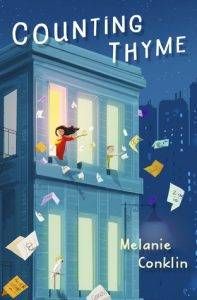 “Growing up, I was often told that I was “too much.” My expectations were too high, my goals too lofty, my attitude too ambitious. While my parents accepted and loved me as I was, other adults struggled, unsure of what to do with such a driven, whip-smart little girl who would not settle for less. Luckily, I trusted my gut and challenged every barrier put before me, despite the pain and derision I sometimes experienced from friends or coworkers. These days, I feel it’s more important than ever to show the young women of tomorrow that there is no such thing as being “too much.” As an author, I take that charge seriously. I have a duty to the headstrong girls of today, the girls who are wondering right now if their contribution to the world really matters–if they, as people, really matter. I am here to tell them that they do matter, so very much, and that I believe in them, in their voices, and in the future they will help to bring about.”
“Growing up, I was often told that I was “too much.” My expectations were too high, my goals too lofty, my attitude too ambitious. While my parents accepted and loved me as I was, other adults struggled, unsure of what to do with such a driven, whip-smart little girl who would not settle for less. Luckily, I trusted my gut and challenged every barrier put before me, despite the pain and derision I sometimes experienced from friends or coworkers. These days, I feel it’s more important than ever to show the young women of tomorrow that there is no such thing as being “too much.” As an author, I take that charge seriously. I have a duty to the headstrong girls of today, the girls who are wondering right now if their contribution to the world really matters–if they, as people, really matter. I am here to tell them that they do matter, so very much, and that I believe in them, in their voices, and in the future they will help to bring about.”
— Melanie Conklin, author of Counting Thyme
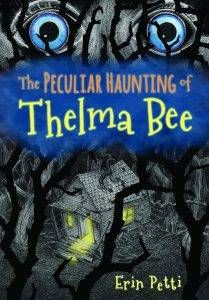 “One of the most important things I can do in writing for and about young girls is convey hope. That’s not going to change because there’s someone in office who is disrespectful toward women and girls. The girls I write about will not doubt their own autonomy. They will always find their voices eventually. They will rise up and feel the full, wonderful power of their young womanhood because that’s what’s authentic. That’s what I know to be true. Women and girls are powerful. I hope that my characters can be lanterns in the night for girls who aren’t sure of their footing and may feel pressed down by the world around them. There is hope, there is strength, there is power, and it is theirs. That’s a key story I want to tell.”
“One of the most important things I can do in writing for and about young girls is convey hope. That’s not going to change because there’s someone in office who is disrespectful toward women and girls. The girls I write about will not doubt their own autonomy. They will always find their voices eventually. They will rise up and feel the full, wonderful power of their young womanhood because that’s what’s authentic. That’s what I know to be true. Women and girls are powerful. I hope that my characters can be lanterns in the night for girls who aren’t sure of their footing and may feel pressed down by the world around them. There is hope, there is strength, there is power, and it is theirs. That’s a key story I want to tell.”
— Erin Petti, author of The Peculiar Haunting of Thelma Bee
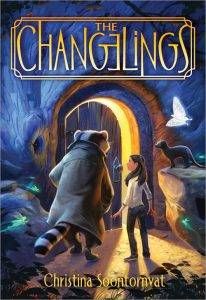 “In addition to writing children’s novels, I’m also a science educator. For both jobs I travel to elementary schools and speak to groups of children with the aim of inspiring them to pursue science and writing, to love reading. I am always keeping an eye on the girls in my audience, just a little more than I am for the boys. I can’t help being a little partial. Because I know what happens just a few years later in middle school – the phenomenon where girls who were once so eager to raise their hands, dying to ask their questions, tripping over themselves to share their stories, suddenly go quiet. These are the years when girls who formerly were interested in everything now start to back away from science and math. This is when they become aware of what the world is telling them they can be.
“In addition to writing children’s novels, I’m also a science educator. For both jobs I travel to elementary schools and speak to groups of children with the aim of inspiring them to pursue science and writing, to love reading. I am always keeping an eye on the girls in my audience, just a little more than I am for the boys. I can’t help being a little partial. Because I know what happens just a few years later in middle school – the phenomenon where girls who were once so eager to raise their hands, dying to ask their questions, tripping over themselves to share their stories, suddenly go quiet. These are the years when girls who formerly were interested in everything now start to back away from science and math. This is when they become aware of what the world is telling them they can be.
Election day left me feeling like I got slapped across the face. I had spent years telling girls that they were just as worthy as boys, that they could do anything, be anyone, that their worth had nothing to do with their outward appearance. And then our country elected a man who basically sent the opposite message. I am working on two novels right now with strong girl characters, and I’ve started a new one inspired by my feelings after the election. More than ever I feel an urgency to write stories that give girls (and boys, too) some ammunition to store away, something to lob back at the world if it ever dares to tell them they’re not worthy. “
— Christina Soontornvat, author of The Changelings
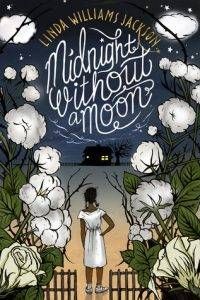 “I once wrote a picture book based on the life of Corrie ten Boom, a brave woman and leader during the Holocaust. I sent the manuscript to an agent who passed on it stating that it was a nice story, but Corrie ten Boom had “had her time.” This was about 12 years ago, and the story found its way to the dreaded “drawer.” Now, in the wake of the fallout from the recent election, I think the time of Corrie ten Boom and other amazing women like her has come again. Our children need to know—not only some of the horrors of our history—but also about the brave women who risked their lives in order to change it (or save it!). This is a time when we as women writers must step up our game and produce books with strong female characters, real and fictional, whose bravery our daughters can emulate. We must give them role models who will not just sit back and allow bad things to happen to good people, but who will step up and make good things happen for all people.”
“I once wrote a picture book based on the life of Corrie ten Boom, a brave woman and leader during the Holocaust. I sent the manuscript to an agent who passed on it stating that it was a nice story, but Corrie ten Boom had “had her time.” This was about 12 years ago, and the story found its way to the dreaded “drawer.” Now, in the wake of the fallout from the recent election, I think the time of Corrie ten Boom and other amazing women like her has come again. Our children need to know—not only some of the horrors of our history—but also about the brave women who risked their lives in order to change it (or save it!). This is a time when we as women writers must step up our game and produce books with strong female characters, real and fictional, whose bravery our daughters can emulate. We must give them role models who will not just sit back and allow bad things to happen to good people, but who will step up and make good things happen for all people.”
— Linda Williams Jackson, author of Midnight Without a Moon
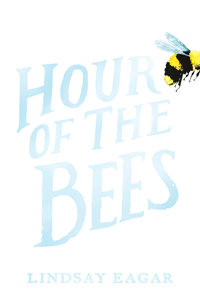 “We writers are implored to write characters with goals, characters who want things, characters who act to move forward. But in light of the current political climate, I feel it’s a real imperative now for me to write female characters who do things. Girls who speak up, girls who defend others, girls who make mistakes and ask for forgiveness, girls who dream and think and work for the world they wish they had. Girls who don’t accept hate or unfairness and fight to make things better. Girls who sacrifice their own comforts for the safety of others. Girls who know that showing kindness is never weakness. Girls who DO things. The future is coming, and I want the girls of the future to remember that change is in their hands.”
“We writers are implored to write characters with goals, characters who want things, characters who act to move forward. But in light of the current political climate, I feel it’s a real imperative now for me to write female characters who do things. Girls who speak up, girls who defend others, girls who make mistakes and ask for forgiveness, girls who dream and think and work for the world they wish they had. Girls who don’t accept hate or unfairness and fight to make things better. Girls who sacrifice their own comforts for the safety of others. Girls who know that showing kindness is never weakness. Girls who DO things. The future is coming, and I want the girls of the future to remember that change is in their hands.”
— Lindsay Eagar, author of Hour of the Bees
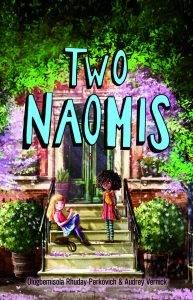 “I look at my daughter, and my heart breaks, wondering if one of the big takeaways of this election for her is that Black and Brown women in this country are not respected, not valued, not loved. I want my work to empower her and all of her Black and Brown sisters to create their own art, to tell their own stories. I write to honor their complex and beautiful lives. I want them to know that they can and should kick back at the bigotry that tries to marginalize and squelch their spirits each day; I want them to know that I know too well that it’s often exhausting, terrifying, and infuriating to have to do that, over and over again.
“I look at my daughter, and my heart breaks, wondering if one of the big takeaways of this election for her is that Black and Brown women in this country are not respected, not valued, not loved. I want my work to empower her and all of her Black and Brown sisters to create their own art, to tell their own stories. I write to honor their complex and beautiful lives. I want them to know that they can and should kick back at the bigotry that tries to marginalize and squelch their spirits each day; I want them to know that I know too well that it’s often exhausting, terrifying, and infuriating to have to do that, over and over again.
I’ve learned that sometimes speaking up means shouting from the rooftops and sometimes silence speaks loudly, and is incredibly powerful. I’ve been the mouthy one, the one with the questions, and I’ve also been the quiet one and I write to let them know that they can be all of the women they are, without apology. I work to tell these girls that their voices are precious, and that they can each shine their own light bright without dimming anyone else’s. Now more than ever, I write to let these girls know that I love them.”
— Olugbemisola Rhuday-Perkovich, co-author of Two Naomis
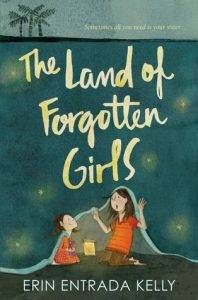 “I didn’t speak up for myself when I was growing up. I didn’t use my voice. Even worse: I didn’t think I had one. Although women have made great strides, it’s clear that our voices are still getting lost, either because people don’t want to hear us or they aren’t listening. My focus is to write characters who are imperfect, intelligent, and kick-ass. But they aren’t Katniss. They aren’t shouting above the noise. I write for the quiet heroes. The ones who are overlooked. The ones who don’t know they have a voice, or are still searching for it. They aren’t the loudest voice in the crowd, but they’re leading the charge. Girls too often feel silenced. I want to show them that there are many ways to speak. And this is the time for many different voices to come together. When we do, they’ll have no choice but to listen.”
“I didn’t speak up for myself when I was growing up. I didn’t use my voice. Even worse: I didn’t think I had one. Although women have made great strides, it’s clear that our voices are still getting lost, either because people don’t want to hear us or they aren’t listening. My focus is to write characters who are imperfect, intelligent, and kick-ass. But they aren’t Katniss. They aren’t shouting above the noise. I write for the quiet heroes. The ones who are overlooked. The ones who don’t know they have a voice, or are still searching for it. They aren’t the loudest voice in the crowd, but they’re leading the charge. Girls too often feel silenced. I want to show them that there are many ways to speak. And this is the time for many different voices to come together. When we do, they’ll have no choice but to listen.”
— Erin Entrada Kelly, author of The Land of Forgotten Girls
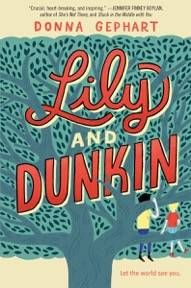 “I want to write stories for girls that nourish their internal voices to be louder, stronger and kinder than those of the society in which they live. I want them to define who they are and determine their places in the world. I want their backs straight, their heads held highland their voices valued. I want them to know we can rise higher when we ALL lift each other up, rather than stand on the backs of others. I want them to know there is a place for them at the table and they don’t need to set that table, prepare the food that goes on it or clean up afterward . . . unless they choose to. I want them to replace “I should” with “I could . . .” I want their heads filled with hope and possibility and their hearts filled with love for themselves and each other.”
“I want to write stories for girls that nourish their internal voices to be louder, stronger and kinder than those of the society in which they live. I want them to define who they are and determine their places in the world. I want their backs straight, their heads held highland their voices valued. I want them to know we can rise higher when we ALL lift each other up, rather than stand on the backs of others. I want them to know there is a place for them at the table and they don’t need to set that table, prepare the food that goes on it or clean up afterward . . . unless they choose to. I want them to replace “I should” with “I could . . .” I want their heads filled with hope and possibility and their hearts filled with love for themselves and each other.”
— Donna Gephart, author of Lily & Dunkin
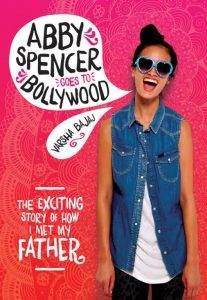 “I am an immigrant woman of color. When I came to America as a graduate student in September 1986, I was enthralled by the American leaves that changed colors and delighted by the diverse student body on campus. Overnight my world expanded as I met international students from every corner of the world. Upon graduation, I chose not to return to India. That choice was dictated by an idealistic belief in the opportunity afforded by this country built by immigrants.
“I am an immigrant woman of color. When I came to America as a graduate student in September 1986, I was enthralled by the American leaves that changed colors and delighted by the diverse student body on campus. Overnight my world expanded as I met international students from every corner of the world. Upon graduation, I chose not to return to India. That choice was dictated by an idealistic belief in the opportunity afforded by this country built by immigrants.
In 1988 when I graduated and was looking for a job, I heard voices on radio and TV that declared that immigrants were stealing jobs that belonged to hard working Americans. The rhetoric was strident and abrasive but the voices were contained in the margins, unable to permeate the mainstream. Even from the margins, they managed to heighten the anxiety and aloneness felt by immigrants. After all a newcomer in a foreign land, who has left everything familiar behind, is like a turtle without its shell. Especially vulnerable to hate and vitriol.
When I woke up on November 9th, it felt like the voices from the margins had crossed the line, and written all over the page. The anti-immigrant rhetoric from the late 1980’s had managed to strike fear and doubt in the heart of an English speaking, twenty something, armed with a graduate degree. What would today’s openly hostile and racist narrative feel like to an immigrant child or a child of color?
Our stories, my stories, must bear witness without alienating. Our stories must try to understand the divide and be a counterforce. Our stories must tear down the proverbial walls and build bridges. Our stories must uphold the ideals of this country while mirroring reality.
There is work to be done. The voice of my 12-year-old Sikh American protagonist must be heard as she attempts to make sense of her world. The next generation is our hope.”
— Varsha Bajaj, author of Abby Spencer Goes to Bollywood
“Like most parents, I was not prepared to have a conversation with my children on Wednesday, November 9th, about our next president. When my six-year-old and eight-year-old woke up that morning and asked if Hillary Clinton had won, my husband and I had to search for words. I don’t remember all of what was said, but I remember saying this to them: “It is time for all of us to be brave and stand up for what we know in our hearts to be right.” My own heart aches when I think about this generation of kids who will grow up under a Trump presidency. And it makes me more convicted than ever to make sure that my daughters, and the girl characters in my stories, stand up strong and brave and relentless in the pursuit of justice, equality, peace, and love.”
— Karina Yan Glaser, author of The Vanderbeekers of 141st Street (Fall 2017, HMH)
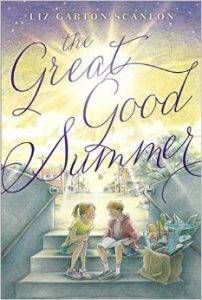 “I write about girls often, in both my picture books and middle grade fiction. I was a girl. I’m a daughter, a sister and a mother – raising two daughters of my own. Girl characters are in my wheelhouse. I haven’t aimed for overt activism through these characters – I’ve just wanted to tell stories that reveal things about people we can connect to and care for. In The Great Good Summer, my protagonist was twelve-year-old Ivy Green – a girl growing up in fictional Loomer, Texas, where they’ve got “more churches than Quik Marts. Way more.” My current WIP focuses on Jules Marshall who’s just moved to the gaslands of Gunther, Oklahoma – another town both fictional and small. I was a small-town girl myself so I write the stories of these girls in these places partly because I know them, but also because so few people do. And being known and understood matters.
“I write about girls often, in both my picture books and middle grade fiction. I was a girl. I’m a daughter, a sister and a mother – raising two daughters of my own. Girl characters are in my wheelhouse. I haven’t aimed for overt activism through these characters – I’ve just wanted to tell stories that reveal things about people we can connect to and care for. In The Great Good Summer, my protagonist was twelve-year-old Ivy Green – a girl growing up in fictional Loomer, Texas, where they’ve got “more churches than Quik Marts. Way more.” My current WIP focuses on Jules Marshall who’s just moved to the gaslands of Gunther, Oklahoma – another town both fictional and small. I was a small-town girl myself so I write the stories of these girls in these places partly because I know them, but also because so few people do. And being known and understood matters.
I’ve spent years now telling my daughters that the world is theirs to step into. The election a few weeks ago made a liar out of me. Suddenly Ivy and Jules mean something different than they did before – something more. Their own suffering is no longer just good story fodder but the suffering of all girls everywhere who are are still being told they are not enough. I think there’s a subtle but important difference between fact and truth and, as fiction writers, our job is to get to the deep-down truth. That truth today is a painful one, making our writing about girls truly critical and – yes – overtly activist. Because these are girls who deserve to be known, respected, listened to, loved and deeply understood – no matter how fictional they may be.”
— Liz Garton Scanlon, author of The Great Good Summer
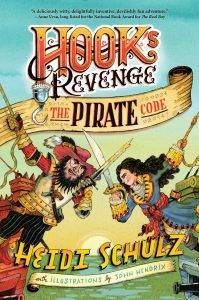 “Now more than ever, I want stories about girls that will take the reins—even when they are not freely offered, girls with deep empathy and kindness, girls with a strong sense of justice, and girls that will fight for what they know is right—regardless of the consequences. I want to see daring girls: daring to dream, daring to try, daring to lead, and double-dog daring others to attempt to keep up with them. I want girls that find strength in femininity, however they choose to define it. I want girls with flaws, unlikeable, but oh, so lovable, heroines that cry, or scream, or rage and still go out and change the world. I want girls who are brash and clever and sensitive and temperamental and quiet and thoughtful and loud and fearless. I want stories about girls, and those are the stories I intend to keep writing, now more than ever.”
“Now more than ever, I want stories about girls that will take the reins—even when they are not freely offered, girls with deep empathy and kindness, girls with a strong sense of justice, and girls that will fight for what they know is right—regardless of the consequences. I want to see daring girls: daring to dream, daring to try, daring to lead, and double-dog daring others to attempt to keep up with them. I want girls that find strength in femininity, however they choose to define it. I want girls with flaws, unlikeable, but oh, so lovable, heroines that cry, or scream, or rage and still go out and change the world. I want girls who are brash and clever and sensitive and temperamental and quiet and thoughtful and loud and fearless. I want stories about girls, and those are the stories I intend to keep writing, now more than ever.”
— Heidi Schulz, author of Hook’s Revenge



